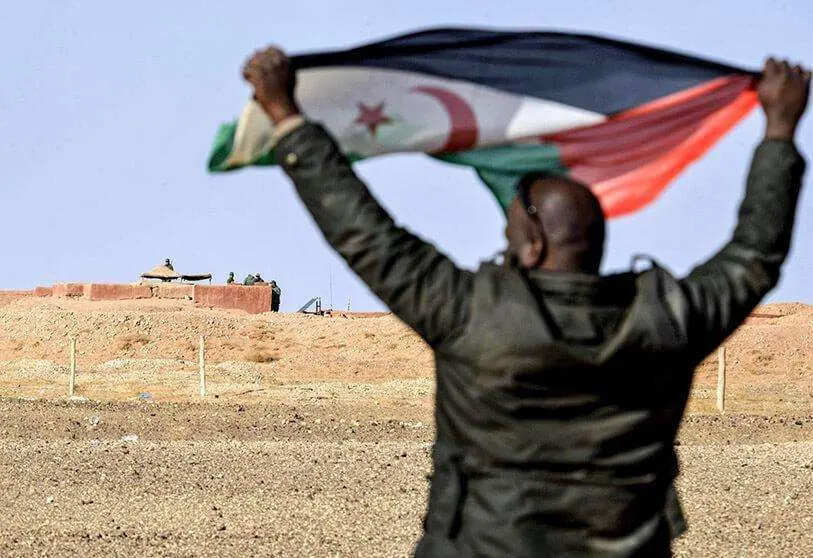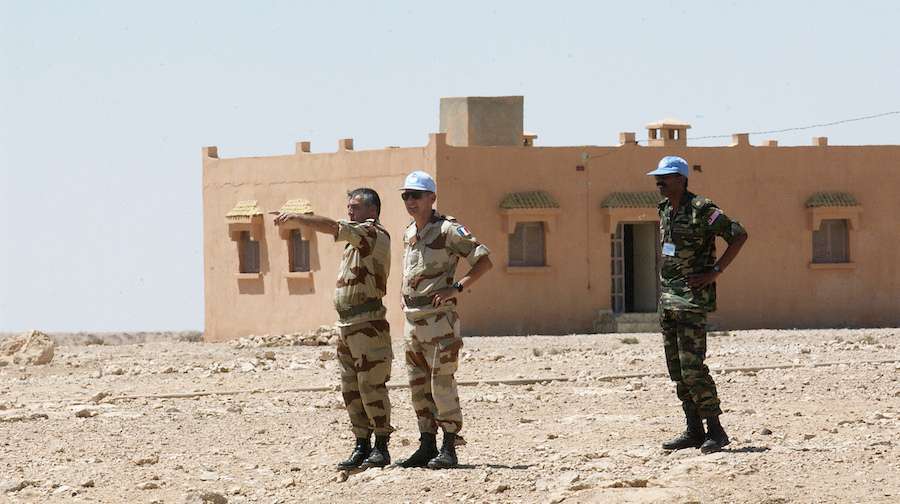Ni Marruecos ni el Polisario dan por roto el alto el fuego en el Sáhara

The Moroccan army broke into a prohibited security zone on Friday morning in the Non-Autonomous Territory of Western Sahara and exchanged fire with the Polisario Front, the Saharan liberation movement that seeks independence. The violence broke a nearly three-decade old ceasefire negotiated by the United Nations in 1991.
On Friday the Moroccan armed forces admitted to an exchange of fire during the operation to clear the Guerguerat pass in the far south, "without any human damage", and Moroccan sources who ask not to be identified told Efe that there was "harassing fire" by Polisario in the Mahbes area in the north of the territory, without causing any material or human damage.
Very different is the version of the Polisario Front, which spoke of "bombing" by its forces against the Moroccan bases of Hauza, Auserd, Mahbes and against the 71 and 172 surveillance points, in which it states that there were "enemy fatalities" that could not be verified.

The fact is that neither of the two sides has formally declared the abandonment of the ceasefire and return to war, and the tension stemming from the communiqués of both sides has not yet reached the Security Council, for example, which has not convened an urgent meeting, as occurs in similar cases.
Only the UN Secretary General made a diplomatic appeal to "prevent the escalation" in the area and "warn against ceasefire violations", without specifically accusing any of the parties.
As far as is known, yesterday's skirmishes have not involved in the least moving the defence wall erected by Morocco in the eighties and with which it managed to keep the "useful territory" of the Sahara (its three quarters) under its control, where the population and natural wealth are located.
Over the past three weeks, Saharawi civilian demonstrators had blocked a road built by Morocco in the area the Saharawis consider illegal. The peaceful blockade delayed traffic for miles and cut off trade between Morocco and southern African countries. The Moroccan army entered the buffer zone on Friday morning to disperse the civilians, who were evacuated to safety by the Polisario Front.

The Saharan refugee camps are on high alert, and Polisario has declared a return to the armed struggle for the liberation of Western Sahara, which has been pending decolonization since 1975 when Morocco invaded the territory after Spain, the former colonial power, withdrew. The ceasefire agreement included a UN-sponsored plan for a referendum on self-determination, which Morocco has refused to hold.
It is true that the heads of the political parties were called to an emergency meeting on Friday afternoon to show unity at this time, but a communiqué was issued in which the president of the government, Saadedin Otmani, went so far as to say that "there was no friction with the separatist militias".
It is difficult to know the exact extent of the clashes or exchanges of fire that took place yesterday, but the fact is that neither side has broken the ceasefire and there is no open war on the horizon.








